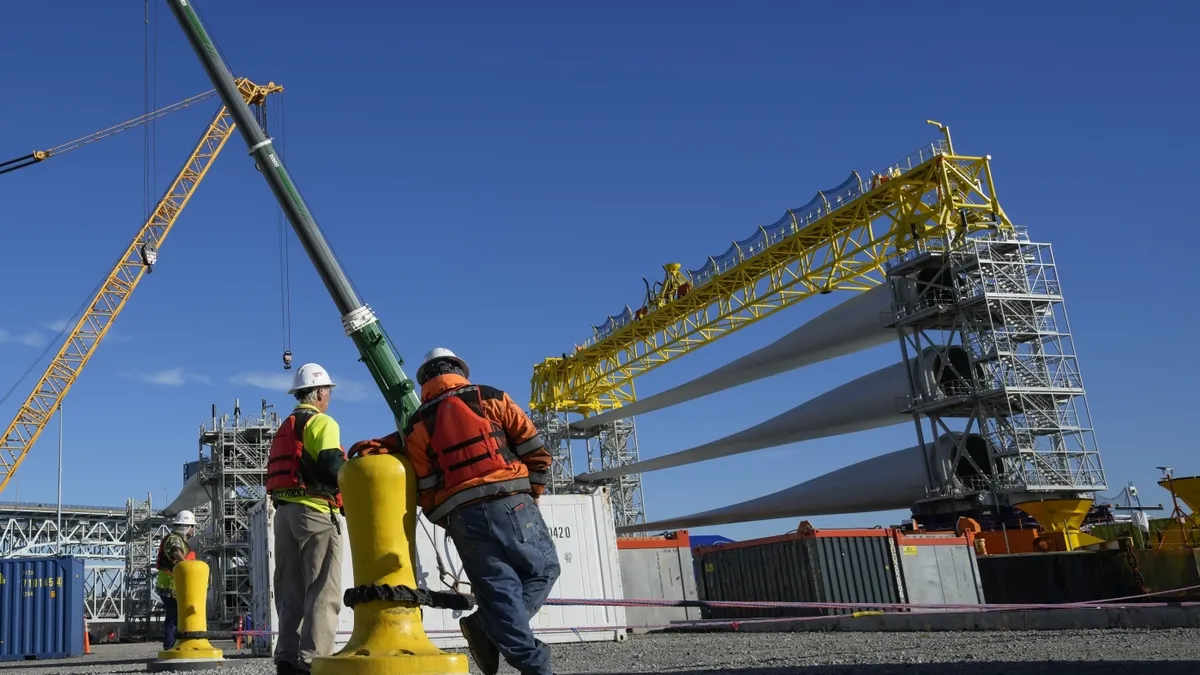
The Trump administration has issued an order to halt the construction of a significant offshore wind farm located off the coast of Rhode Island. The directive came from Matthew Giacona, the acting director of the Bureau of Ocean Energy Management, who communicated the decision in a letter to Ørsted, the Danish firm overseeing the project alongside Global Infrastructure Partners. The government cited concerns regarding national security interests as the primary reason for the suspension of work on the nearly completed Revolution Wind project.
This decision marks yet another move by the Trump administration aimed at the renewable energy industry in the United States. President Trump, known for his criticisms of the wind sector, had previously implemented a moratorium on new offshore wind developments in January. Furthermore, the Internal Revenue Service recently released new guidelines that complicate the qualification for federal tax incentives for companies engaged in the construction of solar and wind projects. Additionally, the Commerce Department is currently investigating whether the importation of wind turbines and their components poses a threat to national security.
In response to the halt, Ørsted released a statement indicating that it is exploring all available options to resolve the situation quickly, including potential legal action. The Revolution Wind project is situated in federal waters approximately 15 miles south of Rhode Island. Construction commenced in 2023, with plans to start delivering electricity to homes and businesses in Rhode Island and Connecticut by next year. However, any delays or uncertainties at this critical stage could have cascading effects on jobs, contracts, and communities that are already benefiting from the project, Erik Milito, president of the National Ocean Industries Association, noted.
Currently, the United States has only one fully operational large-scale offshore wind project generating power, according to Milito. He emphasized that this is insufficient to meet the growing energy demands of the nation. "We need more energy of all types, including oil, gas, wind, and new technologies," he stated. The Bureau of Ocean Energy Management has not responded to inquiries regarding the situation, but industry analysts warn that restricting renewable energy development amidst increasing electricity demand could lead to higher power prices nationwide.
Jason Grumet, chief executive of American Clean Power, remarked on the political dynamics affecting energy policy, stating, "This is not the first time extreme partisan politics has derailed sound energy policy." He criticized the Trump administration's halt of the Revolution Wind project, asserting that the message to investors is alarming: "The U.S. is no longer a reliable place for long-term energy investments."
In April, the Interior Department similarly paused work on the Empire Wind project near Long Island. Interior Secretary Doug Burgum expressed concerns that the project's approval was rushed by the previous administration without thorough analysis. Although construction on Empire Wind resumed in May following the lifting of the stop-work order, the disruption significantly impacted its developer, the Norwegian company Equinor, which subsequently reduced the value of its investment by nearly $1 billion due to regulatory changes affecting future offshore wind projects in the U.S.
Liz Burdock, chief executive of the Oceantic Network, an advocacy group for offshore wind, criticized the Trump administration's actions, stating, "For the second time, the administration has taken unlawful action against a fully permitted offshore wind project under active construction—this time one that is nearly 80% complete." Burdock warned that this move further diminishes investor confidence in the U.S. market across all sectors and undermines progress on critical national priorities such as shipyard revitalization, steel and port investments, and energy independence.
Moreover, halting work on the Revolution Wind project threatens to raise energy costs for consumers, hinder operations for Gulf Coast vessel operators who have made substantial investments in new or retrofitted vessels, and jeopardize the livelihoods of union workers involved in the project.